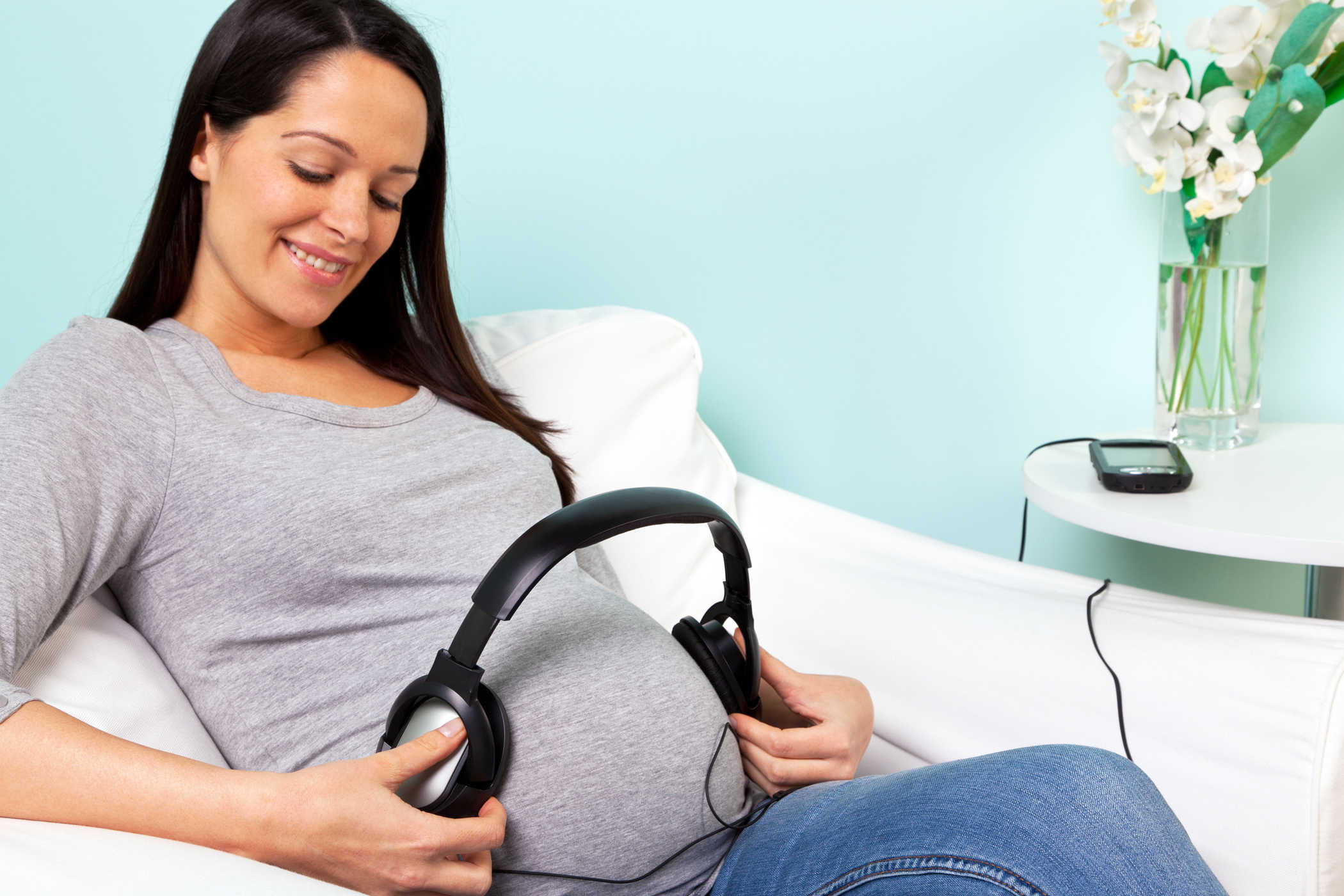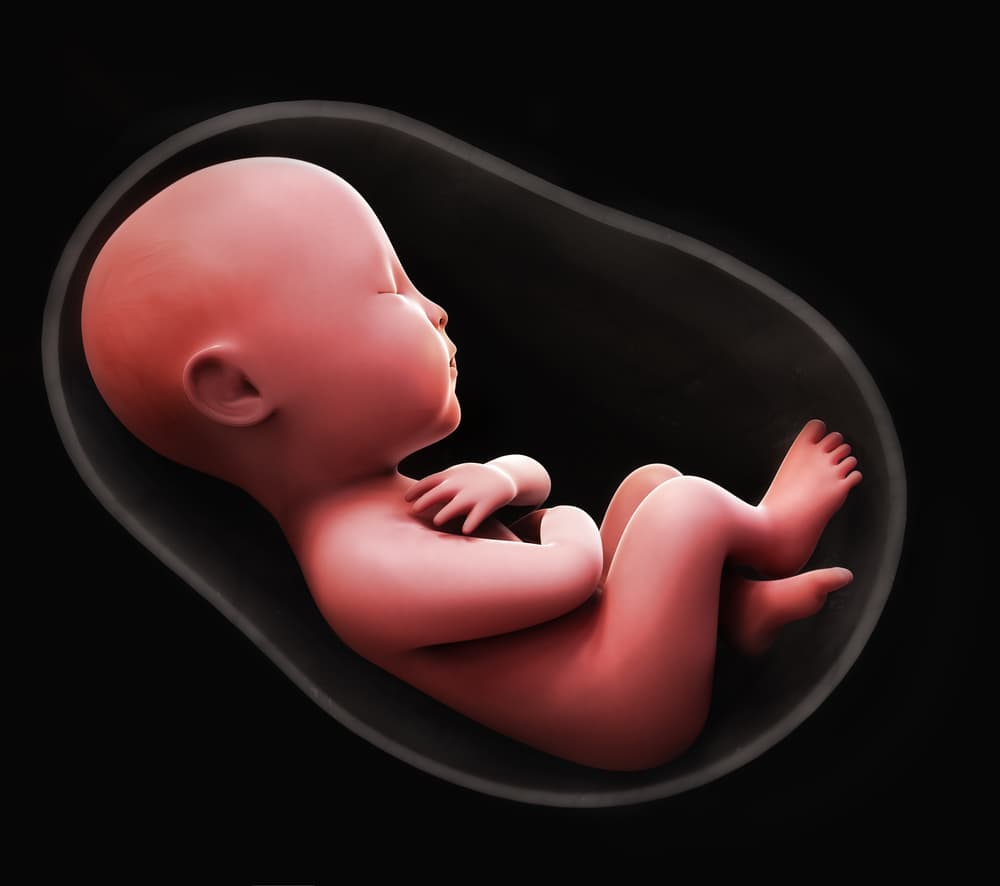Contents:
- Medical Video: Happy Baby White Noise | Colicky, Crying Baby Calms Down Fast! | Infant Sleep Sound 10 Hours
- Babies hear what your mother says even in the womb
- The sounds that are heard during pregnancy affect the development of the baby later
- What about playing music while pregnant?
Medical Video: Happy Baby White Noise | Colicky, Crying Baby Calms Down Fast! | Infant Sleep Sound 10 Hours
When you are pregnant, you may often talk to a baby who is still in the womb. Whether it's telling what is happening, expressing your feelings, or talking about something else. Babies who are in the womb apparently hear all the sounds around them, therefore the sounds can affect the growth and development of the fetus and when the baby is born.
Babies hear what your mother says even in the womb
Did you know that the baby in your womb can actually hear any noise around him, including when you ask him to speak? Evidence of existing research is that newborns can learn to hear and differentiate between sounds and languages around them. However, it turns out there is a new study that states that babies can learn languages when they are very early, even in the womb.
A study can prove that babies who are only a few hours old can actually distinguish the sounds around them. In this study it was said that the baby could tell which language the mother used during the womb, with a foreign language she might have just heard. Cochlear organ growth (an important organ in the sense of hearing that is in the ear) in the fetus has begun to occur at 24 weeks gestation. Then development and growth continue to occur, the auditory and brain sensors begin to develop when the fetus is 30 weeks old.
The study conducted by Pacific Lutheran University stated that at the last 10 weeks of pregnancy, babies in the womb heard when the mother invited him to speak, and at birth he responded that he understood what his mother said while in the womb. As many as 40 baby girls and boys in the United States and Sweden viewed their behavior when they were 30 hours old. When given the mother's voice stimulation with the language she uses everyday, almost all babies respond. Whereas when given stimulation or sound stimulation using foreign languages, not the everyday language he listens to, the babies do not make the same response.
The sounds that are heard during pregnancy affect the development of the baby later
Babies in the womb not only understand and can distinguish foreign languages from everyday language. However, the sound around the baby can have an impact on the health of the baby. For example, in a study conducted in China, it was found that loud sounds that were heard by the fetus when the first trimester of pregnancy risked causing congestive anomalies or birth defects in infants.
Another study has shown that children who have a hearing loss, tested for their hearing ability when they are 4 to 10 years old, are known to be born to mothers who are exposed to sounds with a desible that is 85 to 95 dB during pregnancy. In fact, loud noises can increase the risk of miscarriage in pregnant women who are often exposed to sound with a frequency exceeding 90 dB. Premature birth can also be caused by exposure to sound during pregnancy. Four studies have shown that pregnant women exposed to sound with a frequency of at least 80 dB for 8 hours per day, on average give birth to premature children.
What about playing music while pregnant?
Another thing is with babies who during pregnancy are exposed to noise, babies who, during fetal times, often listen to music, such as instrumental music and classical music, have the potential to have better cognitive development. This has been proven by a study involving 12 pregnant women divided into two groups. The first group is a group of mothers who routinely play music when entering the third trimester, then the second group is a group of mothers who do not routinely play music while pregnant.
After the baby is born, researchers find that the baby turns out to remember the music that was played while still in the womb. The response is known when music that is often played during pregnancy, is played back when the baby has been born and measured by performing an electroencephalogram (EEG), which is a test carried out to determine brain activity. The results of EEG examinations in infants who get a musical stimulus when in the womb, indicate a sign of brain activity that recognizes the music. Then from the study came the conclusion that the fetus remembers the sound it heard and might affect fetal development and growth.
READ ALSO
- The Distance of Pregnancy Is Too Close to Risk for Mothers and Babies
- 10 Things You Must Do During the First Trimester of Pregnancy
- The Process of Pregnancy: From Intimate Relations to Fetus












